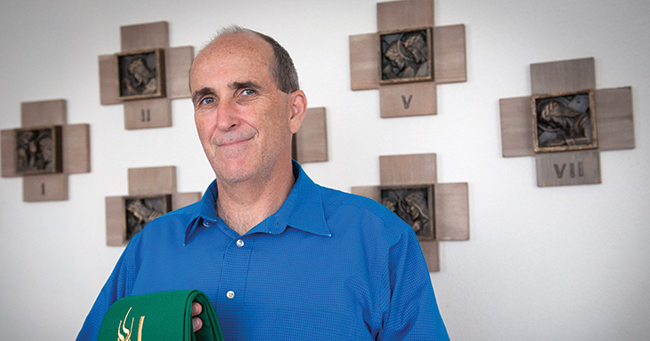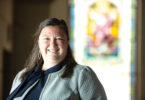
by Leon Suprenant
We know from the Catechism of the Catholic Church that Christian marriage brings a man and woman together for the rest of their lives, to love each other and their children with the love with which Christ loves his church.
We also know that the church calls bishops and priests to remain celibate for the sake of the kingdom of heaven, joyfully serving God’s people with undivided hearts.
These beautiful vocations are generally understood as being complementary, but mutually exclusive.
Enter the permanent diaconate. Deacons are members of the clergy. Through the sacrament of holy orders, they are specially configured to Christ, the “deacon” or “servant” of all (cf. Mk 10:45; Lk 22:27). And yet, most permanent deacons are married with particular responsibilities in the home, or “domestic church.”
How are deacons to understand their vocation as “married clergy” in a way that does justice to both sacraments? That is a great question to which I would like to offer three principles to aid our understanding.
Being vs. Doing After baptism, we are Christians and members of the church. We carry that identity with us wherever we go and in whatever we do. After marriage, we are married men and women wherever we go, and we even wear a ring or carry a picture to remind us of that reality when we are apart.
Similarly, deacons carry their identity with them wherever they go and in whatever they do. Especially for younger, married deacons with children, much of their diaconal activity takes place in their home, not to mention in their workplace.
Integration vs. Compartmentalization
Sometimes we are inclined to compartmentalize the diaconate. When we approach it from this perspective, one perceives the diaconate as something tacked on to the life of an already active Catholic husband and father. It becomes merely the “things they do at church” that “steal time” from their family and work.
I propose that we consider the diaconate not as extending (or overextending) the married Catholic man’s “to-do list,” but as a new deepening of his life in Christ, empowering him to give more fully of himself to family, friends, co-workers and parish as part of a beautiful, integrated life.
Priority vs. Value When a deacon is at home with a sick kid, at a soccer game or recital, or on a “date night” with his wife — and not doing something at the parish instead — it’s not because he got married before he became a deacon or because marriage is more important than holy orders.
Rather, those intentional choices reflect a properly ordered (and diaconal) set of priorities, grounded in prayer, effective spousal communication and docility to the Holy Spirit.
We will further unpack these principles in future columns.






